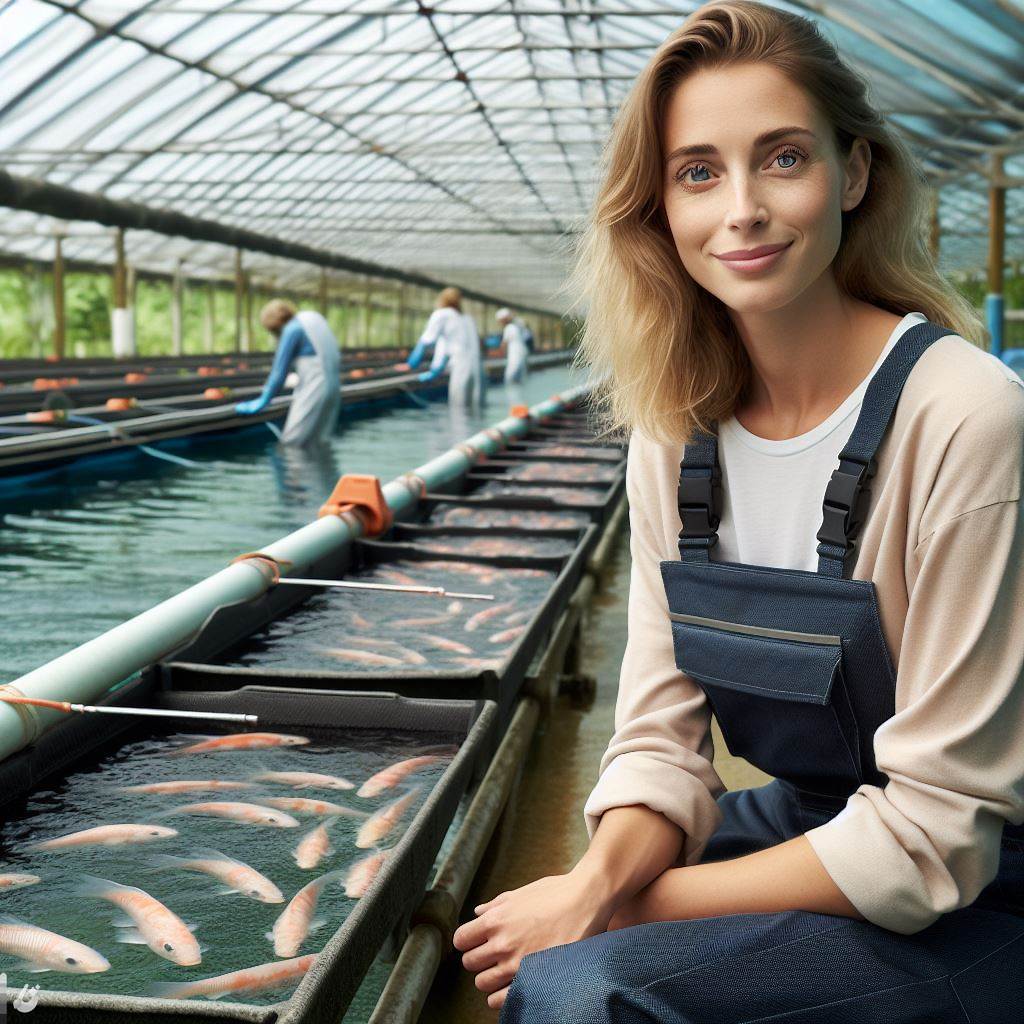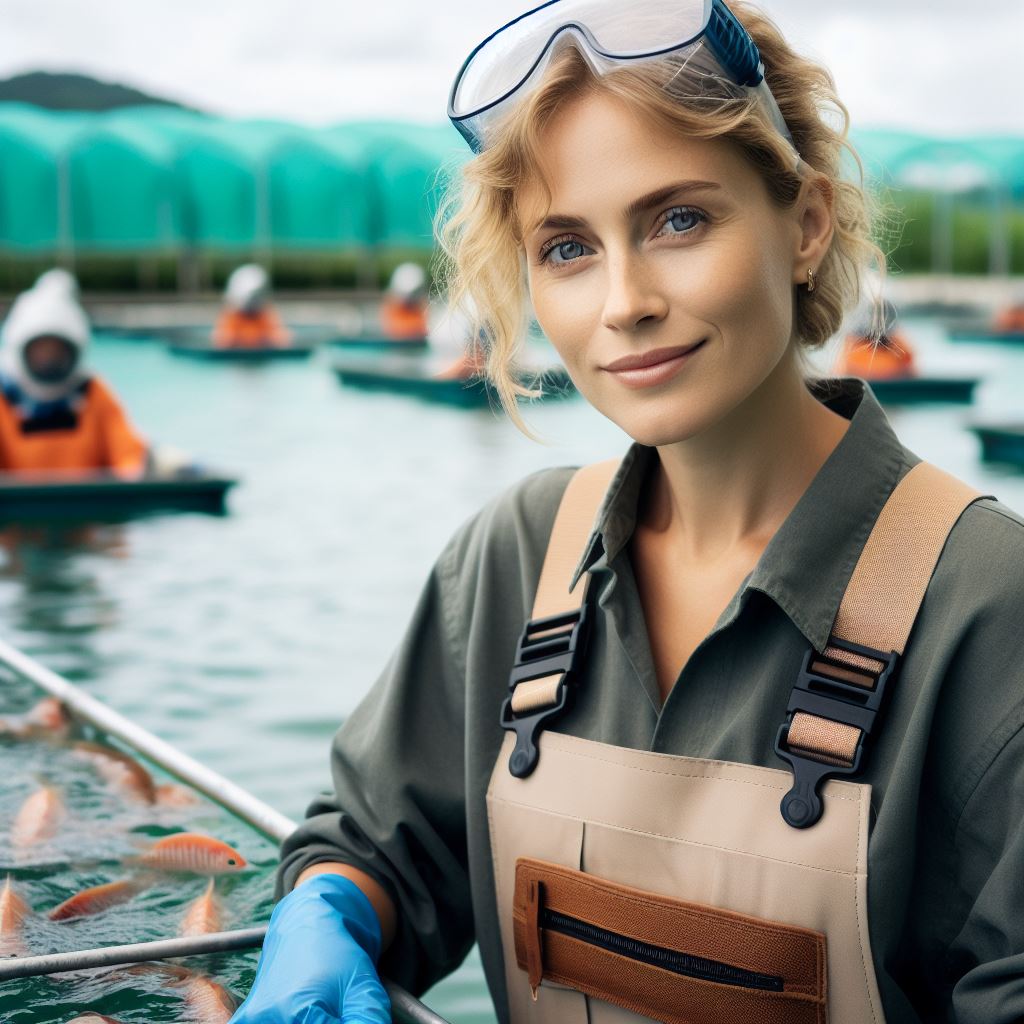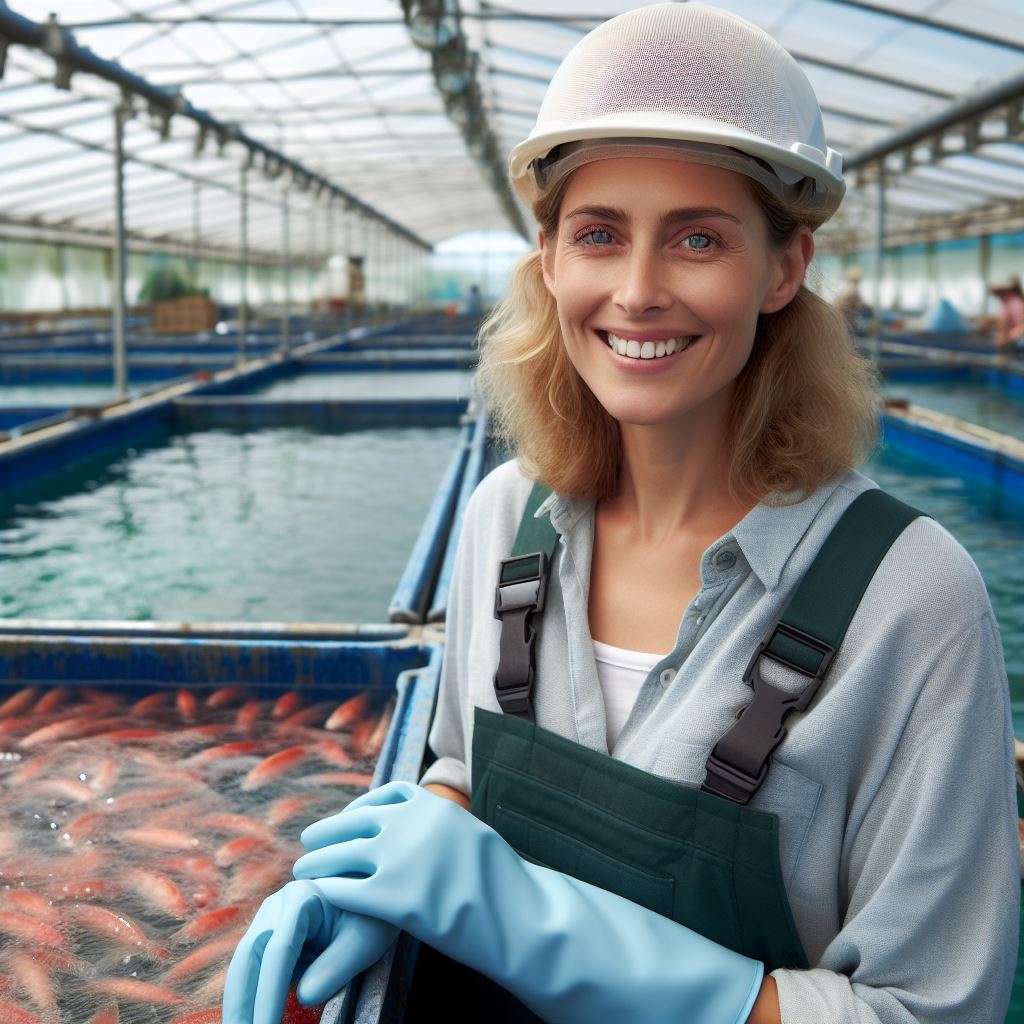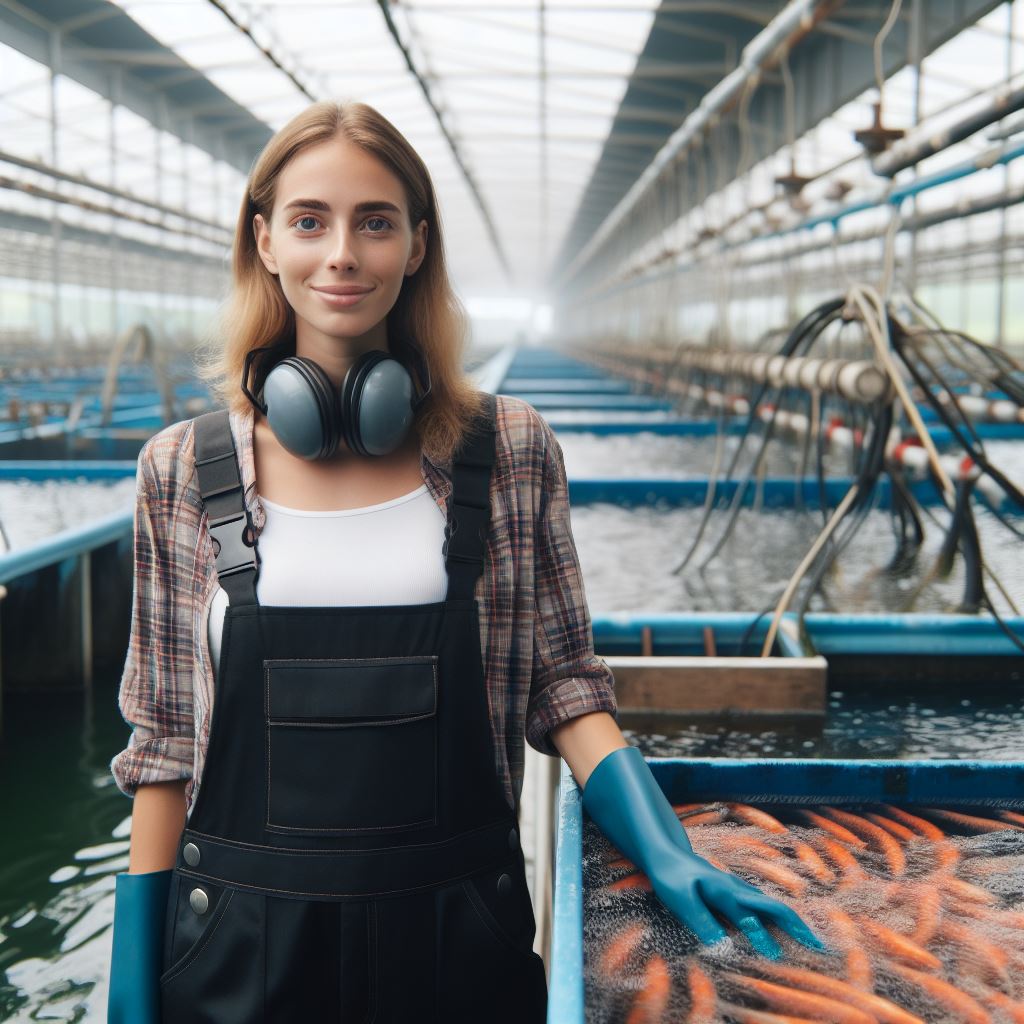Introduction
Defining Sustainable Practices in Aquaculture Tech
Sustainable practices in UK aquaculture tech encompass eco-friendly methods, minimizing environmental impact.
Significance of Sustainable Practices in UK Aquaculture
- Preserving Ecosystems: Sustainable aquaculture safeguards ecosystems, maintaining biodiversity and supporting marine life resilience.
- Economic Growth: Implementing sustainable practices ensures long-term economic stability and growth for the UK aquaculture industry.
- Social Responsibility: Prioritizing sustainability in aquaculture reflects a commitment to ethical practices, fostering positive societal impacts.
Purpose of the Blog Post
This blog explores the pivotal role of sustainable practices in UK aquaculture tech, emphasizing environmental responsibility and economic prosperity.
Overview of UK Aquaculture Industry
Current state of the aquaculture industry in the UK
- The UK aquaculture industry has seen significant growth in recent years.
- It is an important sector for the UK economy, providing jobs and generating revenue.
- The industry is primarily focused on the production of salmon and trout.
- There has been a shift towards sustainable practices to mitigate environmental impacts.
- Consumer demand for sustainably sourced seafood has driven this shift.
- Certification programs like the Aquaculture Stewardship Council (ASC) have gained popularity.
- These programs ensure that aquaculture is conducted in an environmentally and socially responsible manner.
Major players and key statistics
- Two major players in the UK aquaculture industry are Scottish Sea Farms and Marine Harvest.
- Scottish Sea Farms is a joint venture between SalMar ASA and Lerøy Seafood Group.
- Marine Harvest is one of the largest seafood companies in the world.
- The UK aquaculture industry supports over 7,000 jobs and contributes over £600 million to the economy.
- Salmon is the top species produced, accounting for 96% of the total value of aquaculture production.
- Other species produced include trout, mussels, oysters, and seaweed.
Challenges faced by the industry
- One of the major challenges faced by the UK aquaculture industry is sea lice infestations.
- Sea lice are parasites that attach themselves to fish, causing health and welfare issues.
- Controlling sea lice requires the use of medicinal treatments, which can have environmental consequences.
- Another challenge is the impact of climate change on the industry.
- Changing water temperatures and ocean acidification can affect the growth and survival of aquaculture species.
- There is also a need for effective waste management strategies in aquaculture operations.
- Proper management of waste is crucial to minimize environmental pollution and ensure sustainability.
Overall, the UK aquaculture industry has witnessed growth and is actively adopting sustainable practices.
Major players in the industry include Scottish Sea Farms and Marine Harvest, with salmon being the primary species produced.
However, the industry faces challenges such as sea lice infestations, climate change impacts, and waste management.
Efforts are being made through certification programs and technological advancements to address these challenges and ensure the industry’s long-term sustainability.
Read: Day in the Life of a UK Aquaculture Technician
Sustainable Practices in UK Aquaculture Tech
Introduction to sustainable practices in aquaculture
Aquaculture is the practice of cultivating aquatic organisms in controlled environments for the purpose of food production.
In order to meet the increasing demand for seafood, sustainable practices have been adopted in the aquaculture industry.
Importance of technology in achieving sustainability
Technology plays a vital role in achieving sustainability in UK aquaculture. It enables the industry to reduce waste, minimize environmental impact, and enhance productivity.
Examples of sustainable practices in UK aquaculture tech
Use of advanced filtration systems to reduce waste
Advanced filtration systems are employed to remove excess nutrients, organic matter, and bacteria from aquaculture systems.
This helps maintain optimal water quality and reduces the discharge of pollutants into the environment.
Implementation of closed-loop systems
Closed-loop systems are designed to recycle and reuse water in aquaculture facilities. This not only reduces the consumption of fresh water but also minimizes the release of pollutants into rivers and oceans.
Adoption of renewable energy sources
Utilizing renewable energy sources, such as solar and wind power, in aquaculture operations helps in minimizing carbon emissions and reducing dependency on fossil fuels.
This contributes to a more sustainable and environmentally friendly industry.
Personalized UK Career Consulting
Receive tailored career guidance designed just for you. Get actionable steps and expert support to boost your career in 1-3 days. Take control of your career now.
Get StartedMonitoring and control systems to minimize environmental impact
Sophisticated monitoring and control systems are used to continuously monitor water quality, oxygen levels, and other environmental factors.
This enables proactive management and ensures that environmental conditions are optimized for the well-being of aquatic organisms.
By implementing these sustainable practices, the UK aquaculture sector aims to minimize its ecological footprint, conserve resources, and contribute to the overall sustainability of the seafood industry.
In essence, sustainable practices in UK aquaculture tech are crucial for the long-term viability and environmental stewardship of the industry.
Advanced filtration systems, closed-loop systems, renewable energy adoption, and monitoring/control systems are examples of effective strategies being employed.
By embracing these practices, the aquaculture industry is striving towards a more sustainable and responsible future.
Read: UK Aquaculture: Salary & Career Outlook 2024
Benefits of Sustainable Practices in UK Aquaculture Tech
Environmental benefits
- Sustainable practices in UK aquaculture tech contribute to the preservation of water quality.
- By implementing sustainable practices, carbon footprint in UK aquaculture tech can be significantly reduced.
- Sustainable practices in UK aquaculture tech help protect natural ecosystems and biodiversity.
Economic benefits
- Sustainable practices in UK aquaculture tech lead to cost savings due to increased efficiency.
- Implementing sustainable practices improves the reputation of UK aquaculture tech and increases market demand.
- Sustainable practices in UK aquaculture tech contribute to the creation of sustainable jobs and economic growth.
Social benefits
Sustainable practices in UK aquaculture tech ensure food security, supporting local communities for their development and well-being.
These practices yield various benefits:
Environmental Benefits
- Crucial role in preserving water quality.
- Prevent pollution, sustaining aquatic environments.
Carbon Footprint Reduction
- Implementing eco-friendly methods.
- Minimizing carbon emissions, combating climate change.
Economic Efficiency
- Cost savings through resource optimization.
- Improved waste management and product quality.
Enhanced Reputation
- Boosts market demand and industry reputation.
- Meets consumer preferences for sustainable products.
Job Creation and Economic Growth
- Generates sustainable jobs and economic opportunities.
- Aligns with evolving industry sustainability standards.
Social Benefits
- Assures food security and availability.
- Meets demand for nutritious, high-quality seafood.
Community Development
- Supports local economies.
- Fosters social well-being and economic opportunities.
In summary, sustainable practices in UK aquaculture tech encompass a comprehensive approach, ensuring environmental preservation, economic viability, and social well-being.
Read: Top 5 Challenges for UK Aquaculture Techs

Uncover the Details: The Path to Becoming an Arboriculturist
Challenges and Future Directions
Existing challenges in implementing sustainable practices
- Limited funding for research and development hinders the adoption of sustainable practices.
- Lack of public awareness and understanding about the importance of sustainable aquaculture.
- Insufficient regulatory framework to ensure compliance with sustainable practices.
- Difficulty in achieving a balance between increasing production and maintaining environmental sustainability.
- Intensive farming practices that lead to environmental degradation and pollution.
- The presence of invasive species that can affect local ecosystems and biodiversity.
Potential solutions and innovations
- Increasing investment in research and development to develop more sustainable aquaculture technologies.
- Promoting education and awareness campaigns to promote sustainable practices among consumers.
- Encouraging the use of alternative feed sources that reduce the reliance on wild-caught fish as feed.
- Implementing better water management techniques to minimize environmental impact.
- Developing and adopting new breeding techniques that improve the resilience and disease resistance of farmed fish.
- Exploring the use of integrated multi-trophic aquaculture systems to reduce waste and improve resource efficiency.
Role of government and organizations in promoting sustainability
- Establishing strict regulations and standards to ensure the adoption of sustainable practices in aquaculture.
- Providing financial incentives and grants to encourage farmers to implement sustainable technologies and practices.
- Supporting research institutions and universities in developing sustainable aquaculture technologies.
- Collaborating with international organizations to share knowledge and best practices in sustainable aquaculture.
- Promoting certification programs that recognize and reward farmers for adhering to sustainable practices.
- Investing in infrastructure development to support the growth of sustainable aquaculture.
To sum it up, implementing sustainable practices in UK aquaculture technology faces several challenges, including limited funding, lack of awareness, and inadequate regulations.
However, potential solutions and innovations such as increased research investment, alternative feed sources, and integrated aquaculture systems offer hope for a more sustainable future.
Your Dream Job Starts with a Perfect CV
Get a tailored CV and cover letter that captures your unique strengths and stands out in your industry. Let us help you make an unforgettable first impression.
Get StartedThe role of government and organizations in promoting sustainability through regulations, financial incentives, and knowledge-sharing is crucial in driving the industry towards a more sustainable path.
By addressing these challenges and embracing sustainable practices, the UK aquaculture sector can contribute to a more environmentally friendly and socially responsible food production system.
Read: Aquaculture in the UK: Education Pathways
See Related Content: Heritage Farming Practices in the UK Revived
Conclusion
In closing, sustainable practices in UK aquaculture tech are crucial for the long-term viability of the industry.
By implementing sustainable practices, such as minimizing waste and reducing carbon emissions, we can ensure the preservation of aquatic ecosystems and secure a sustainable food source.
It is essential that individuals and businesses recognize the significance of these practices and actively embrace them.
Only through collective effort will we be able to achieve a truly sustainable UK aquaculture tech sector.
We urge individuals to support sustainable aquaculture by making responsible choices as consumers and promoting awareness.
Additionally, businesses should prioritize sustainability, invest in innovative technologies, and collaborate with regulators and researchers to drive positive change.
Together, we can create a future where sustainable practices are integrated into the very fabric of UK aquaculture tech, ensuring the well-being of both our environment and communities.
Let us take action now and be part of the movement towards a more sustainable and responsible aquaculture industry.
[E-Book for Sale]
500 Cutting-Edge Tech Startup Ideas for 2024 & 2025: Innovate, Create, Dominate
$19.99 • 500 Tech Startup Ideas • 62 pages
You will get inspired with 500 innovative tech startup ideas for 2024 and 2025, complete with concise descriptions to help you kickstart your entrepreneurial journey in AI, Blockchain, IoT, Fintech, and AR/VR.



